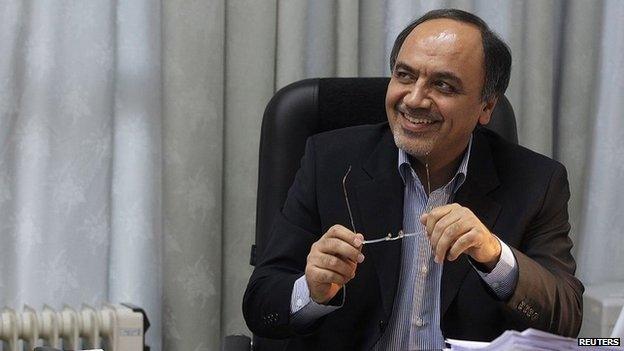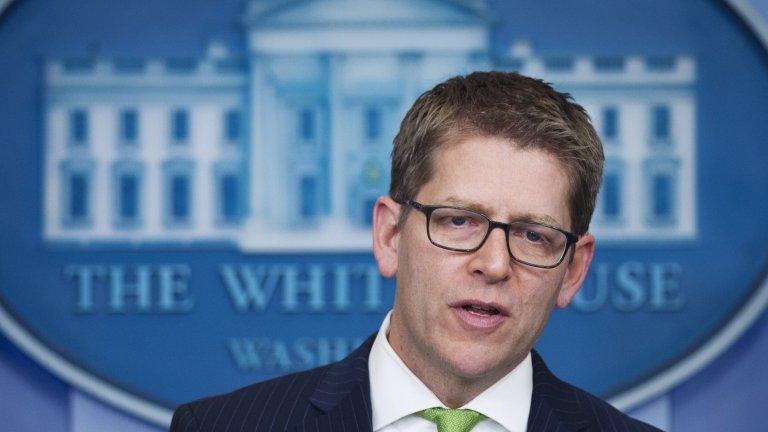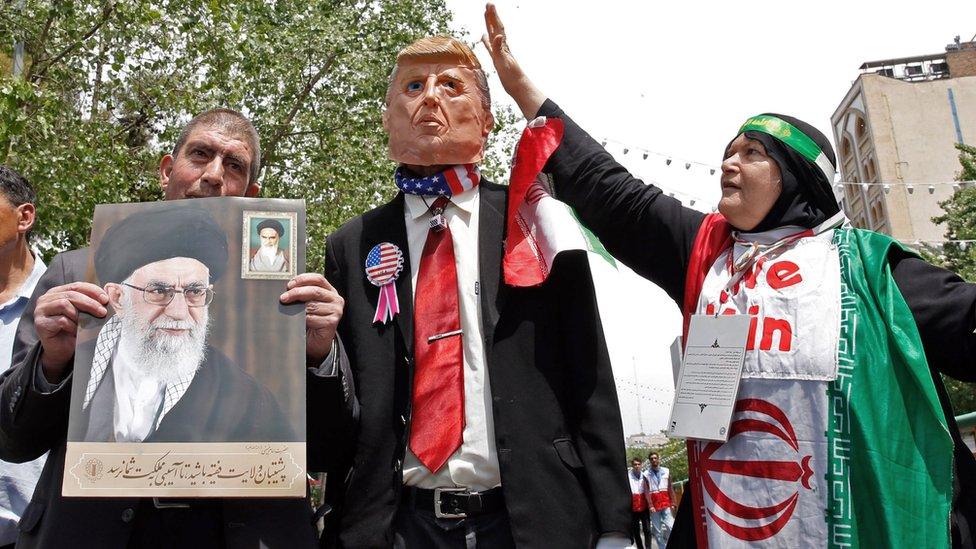Iran complains to UN over US ban on envoy Aboutalebi
- Published

Hamid Aboutalebi is a senior political adviser to President Hassan Rouhani
Iran has complained to the United Nations over the decision by the United States to refuse a visa for its newly appointed permanent representative.
Iran's deputy envoy at the UN in New York, Hossein Dehghani, wrote that the US had violated its legal obligations and set a dangerous precedent.
The US barred Hamid Aboutalebi because of his links to students who seized the US embassy in Tehran in 1979.
He has insisted that he acted merely as a translator on a couple of occasions.
A senior political adviser to President Hassan Rouhani, he has previously served as the Iranian ambassador to Italy, Belgium and Australia.
'Negative implications'
No evidence has been published showing that Mr Aboutalebi was used as a regular translator or participated in interrogations of the 52 Americans who were held hostage for 444 days.
But on Friday, the White House said it had informed the Iranian government that it would not grant him a visa. The next day, Iran's foreign ministry said it would not withdraw his appointment.
On Monday evening, Mr Dehghani wrote to the UN Committee on Relations with the Host Country to request an urgent meeting.
He complained that the US had violated its legal obligations under international law, and under the agreement establishing Washington's responsibilities towards UN headquarters.
"This decision of the US government has indeed negative implications for multilateral diplomacy and will create a dangerous precedence and affect adversely the work of intergovernmental organisations and activities of their member states," he warned.
The chairman of the Committee on Relations with the Host Country, Nicholas Emiliou of Cyprus, said a meeting would probably be held next week.
President Barack Obama has come under intense pressure from the US Congress not to allow Mr Aboutalebi to enter the country.
The House of Representatives and the Senate have both voted in favour of a bill barring Mr Aboutalebi. It still requires the president's signature before it can become law.
Under the 1947 Headquarters Agreement, the US is generally required to grant visas to persons invited to the UN in New York.
Washington says it can deny visas for "security, terrorism, and foreign policy" reasons, but legal experts say it is difficult to argue that Mr Aboutalebi poses an immediate threat.
The BBC's Barbara Plett Usher says whatever the case officials say the treaty has no enforcement mechanism, so any action taken will probably be about making political points.
But there is concern the row could undermine current negotiations over Tehran's controversial nuclear programme, our correspondent adds.
- Published8 April 2014

- Published11 April 2014

- Published6 January 2020
